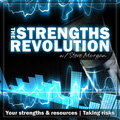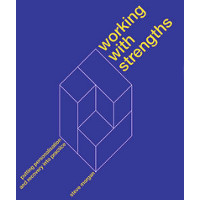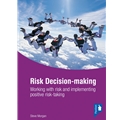Sacred Fools
 Tuesday, June 3, 2014 at 10:00PM
Tuesday, June 3, 2014 at 10:00PM Why listen to the self-styled publicity of the author when you can take the word of an independent expert? The following are extracts from the Foreword written by Professor Steve Onyett for this new book 'Working with Strengths':
 Steve OnyettRadical in the sense of challenging the status quo. I love the notion of "funky" mental health services where we first break all the rules – not in a spirit of anarchy so much as in recognition of the fact that so many of our current assumptions simply don’t serve. We need more sacred fools who will run into the royal court and fart in front of the King or Queen in order to shake things up and reveal new and better ways.
Steve OnyettRadical in the sense of challenging the status quo. I love the notion of "funky" mental health services where we first break all the rules – not in a spirit of anarchy so much as in recognition of the fact that so many of our current assumptions simply don’t serve. We need more sacred fools who will run into the royal court and fart in front of the King or Queen in order to shake things up and reveal new and better ways.
There is no shortage of guidance around. There is a plethora of exhortations to be positive and focus on strengths from every direction. However, not so many get behind the rhetoric to look with clear and open eyes at how this plays out in reality. This requires that we look not just at what people say they do, but what they do do. It means that we need to look at what happens in practice and learn from that experience.
Steve Morgan is one of our greatest assets in this context. He has been at the forefront of the movement for strengths based practice in mental health services for a long time and has borne witness to both its successes and it’s disappointments. He has brought this invaluable perspective to bear here in a book that tells you pretty much everything there is to know about how things could be, while also equipping you for the stark realities of implementation in challenging contexts. He does this without judgement or cynicism, thereby leaving us with a sense of the possible and a range of first steps that we can take to make it happen. It has been said that a cynic is a passionate person that does not want to be disappointed again (Zander and Zander, 2000). Here Steve talks to the passion rather than the disappointment.







Reader Comments